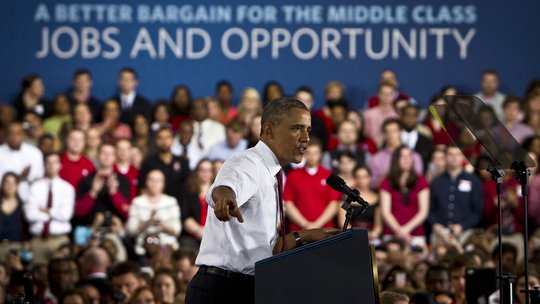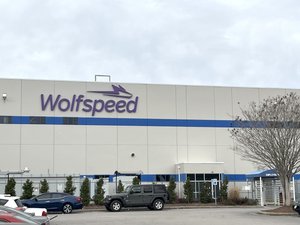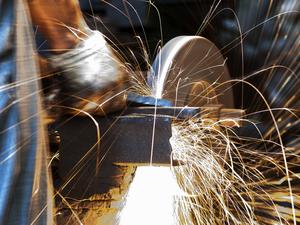
It was standing room only at North Carolina State University in January 2014 when President Barack Obama announced Raleigh had been selected as the site for a new innovation hub focused on manufacturing.
He told the crowd it was about global competitiveness.
“I don’t want the next big job-creating discovery, the research and technology to be in Germany or China or Japan,” Obama said. “I want it to be right here in the United States of America. I want it to be right here in North Carolina.”
The $140 million innovation hub – known as the PowerAmerica Institute and led by North Carolina State University – would focus on the next generation of power electronics.
Now, nearly 10 years later, the U.S. Department of Energy is extending its bet on the effort, funneling in another $8 million – with the potential for $32 million in total new DOE funding over the next five years.
As the cost of the hub is shared with the private sector, the funding renewal opportunity could be worth up to $64 million.
Victor Veliadis, the N.C. State professor serving as executive director and chief technology officer of PowerAmerica, said that the new funding is validating – both to what the consortium has already accomplished and what it will do next.
Each year, the 90 members of the consortium descend on N.C. State to look at problems in the space and identify new projects. And project by project, the manufacturing industry learns more about what power devices can do – resulting in new products and new jobs.
“The outcomes of that work will benefit everybody,” Veliadis said.
Already, the public-private partnership has trained hundreds of students and has organized tutorials and educational events that have drawn more than 4,500 attendees, according to the initiative.
With the new funding, PowerAmerica hopes to build on its existing education and workforce development program.
Veliadis, speaking from Taiwan, said there’s still a nationwide shortage of technologists skilled in next-generation semiconductor manufacturing. That’s a problem as the U.S. tries to carve out a power position in the space.
The semiconductor materials that PowerAmerica works with – including Durham semiconductor maker Wolfspeed’s sweet spot of silicon carbide – are more efficient than traditional silicon. The consortium exists not only to train future workers in the sector but to also innovate ways to manufacture the materials and the power devices they create at scale.
Veliadis said it also helps efforts toward decarbonization, as silicon carbide can help increase efficiencies as the world moves toward electrification.
Wolfspeed (NYSE: WOLF) is among the founding members of the consortium and, as the company is building a new facility in Chatham County, PowerAmerica will likely have more collaboration opportunities, Veliadis said.



